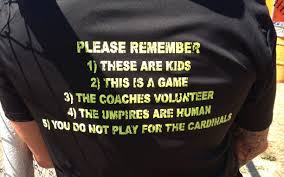Oh, if only it were possible to talk to me when I was younger and thinking I knew it all already. I have been coaching for over 35 years (yeah I can’t believe it either), and there are things that I know now that I never could have known then. I had a few coaches come in and out of my career, I never really could say that anyone specific was the guy.
So I never had insight shared with me by someone who really knew me. A coach doesn’t only teach you skills and take you from competition to competition, season to season. A coach is one of your best and most trustworthy advisors. The men and women who coached me, even for short times, provided me with wisdom and insight that I would never hear from anyone else; or if I did, I likely wouldn’t listen because they weren’t my coach. As a coach, if I could talk to younger me, knowing how I was so hungry to learn, so in search of perfection, so scared of success and failure, and so in need of validation; here is what I would address.
First out, it may seem like the world has conspired against you, but it hasn’t. No one thinks that you are so important that they all got together to hold a meeting on how your life should go. So get that out of your head. The decisions you make will lead you to opportunities, and action on those opportunities will determine what actually happens. That’s it. No conspiracy, no meetings. You may have been given a hard set of cards, but stop complaining about the deal and play your hand. If the game seems like it’s not going to go well with your cards, then make your own game. You after all, get to decide whether you are happy or sad, aggressive or passive, a success or a failure. That’s a lot of responsibility, take it seriously.
Be the guy that does 11 when the coach asks for 10. Don’t point it out, don’t brag about working harder, just quietly do it. The extra 10% will add up and even if it doesn’t mean that you win a meet, you will have the satisfaction of knowing that you did your best and it’s really not asking for a lot, is it? Your best effort will be your prize. All of your awards, medals, and trophies will eventually be lost after being packed in a box in the basement so how important could they be? Yes, there will be those people that do better than you and work only half as much. You don’t get to control their story and their life will matter only minimally to yours, in time your 10% will make a difference and you can be satisfied that it wasn’t luck, or someone else that got you where you are, it’s all you.
Don’t be afraid of what’s next. Crave it. Look for the next step, the next skill, the next opportunity. When you sit back and relax, happy that you completed a phase or a season you have to realize that that moment of reflection is a needed temporary respite from the labor of progress, but it’s the chase, the work, and the desire for growth that is where you will find real joy. Always ask “what’s next?”
The sport is a game. Sometimes you win and sometimes you learn. The judgment is based on your performance at a given time, in a given place with a given set of circumstances. That’s not your life, it’s a game, a show. Treat it like what it is, it’s a fun reason to show off what you can do. Sometimes you will land on your butt, sometimes you will be amazing. Both times are just for fun, do your best, that’s it.
Appreciate the rough times, that’s where the most valuable lessons will come from. Instead of feeling bad and trying to get someone to pity you, look deeper and see what you can learn from whatever is happening. Your education never ends because every day will throw you a new chance to learn something. You may have to look for lessons some days though, but don’t be discouraged, they are there.
It’s OK that you don’t fit in. It’s better to be separated and be yourself than to try so hard to fit in and be in a group. Go ahead, get the earring, read your books, listen to your weird music and wear your hair long, wait until you see what happens.
Mom is usually right, she may be a little nutty, but she has seen life and she knows what time it is. Listen to her. Oh, but don’t sweat that she doesn’t like your girlfriends, it’s just that she always thinks no one is good enough for you. She’s wrong on that, you will find the right one, trust me and just be patient.
Lastly, everything will be fine. There will be times when you feel like you are sliding backwards. You’re not. You can’t always progress, sometimes you may slow down, that’s OK. There will be times too, to be sure, that you feel that everything is perfect. That’s not right either. Never will it all be perfect, never will you allow it to fail. It all is going to be fine because it will come out just as you imagine it to be. Remember when I said that you have the responsibility to be happy or sad, to be a success or a failure? This is when it applies. Imagine what you want and make it so. Even if it doesn’t come out perfect it will be better than if you never cared one way or another. There is nothing as satisfying as knowing that everything is just the way it should be, because you made it so.
Now go climb the rope, you need upper body strength.








